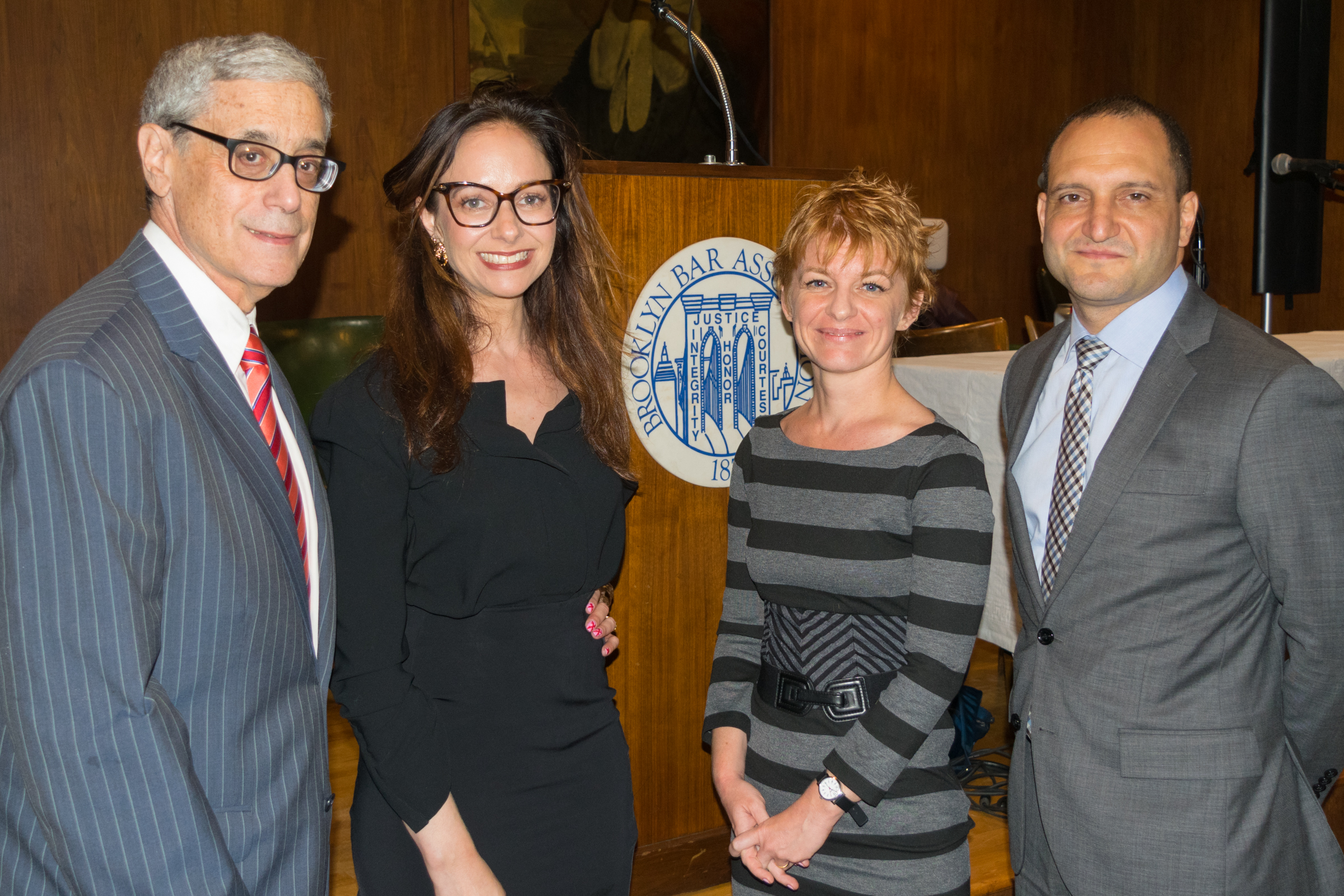New revenge porn law discussed at Brooklyn Bar Association CLE

New York State became one of the last states in the country to enact a “revenge porn” law when it passed one on Sept. 21, but the Brooklyn Bar Association wasted no time in getting one of the leading advocates to help its members best utilize it to protect their clients.
Carrie Goldberg, from the victims’ rights firm C.A. Goldberg, and Susan Crumiller, from feminist litigation firm Crumiller P.C., led a continuing legal education (CLE) seminar titled, “Nobody’s Victim: New York State’s Revenge Porn Law” at the Brooklyn Bar Association on Oct. 3.
“It’s a privilege and a pleasure,” said Steve Cohn when he introduced the pair of attorneys. “I had the opportunity to meet Carrie Goldberg when she moved onto Court Street. She has a wonderful new book, Nobody’s Victim. But, tonight, she and Susan Crumiller are going to be talking about the state’s revenge porn laws and other rights that are important and available.”

Brooklyn Boro
View MoreNew York City’s most populous borough, Brooklyn, is home to nearly 2.6 million residents. If Brooklyn were an independent city it would be the fourth largest city in the United States. While Brooklyn has become the epitome of ‘cool and hip’ in recent years, for those that were born here, raised families here and improved communities over the years, Brooklyn has never been ‘uncool’.